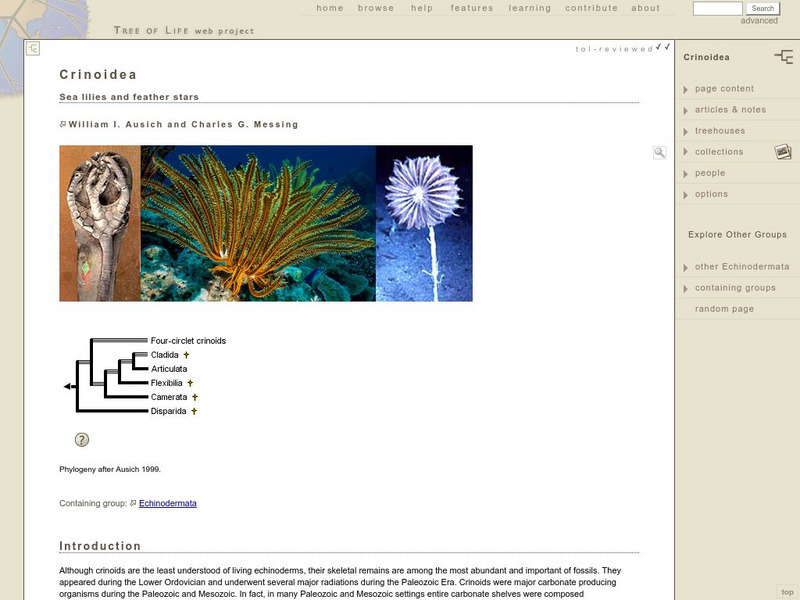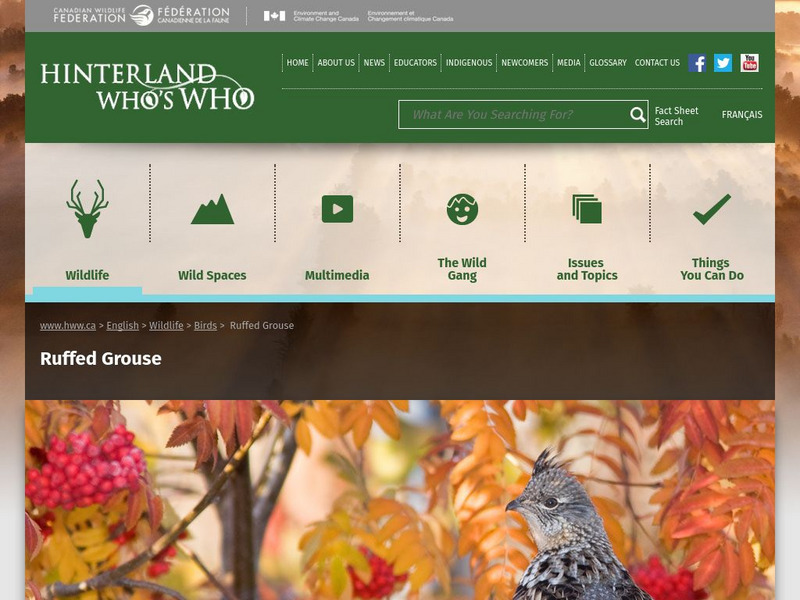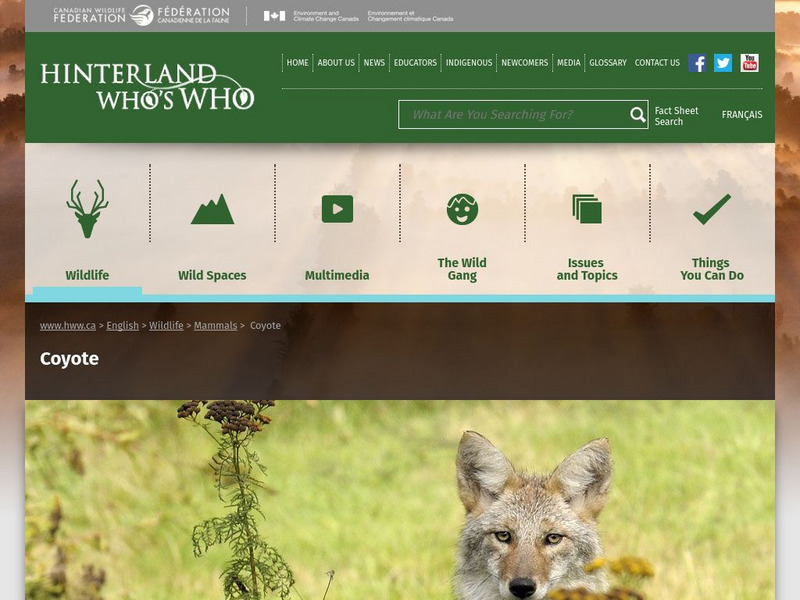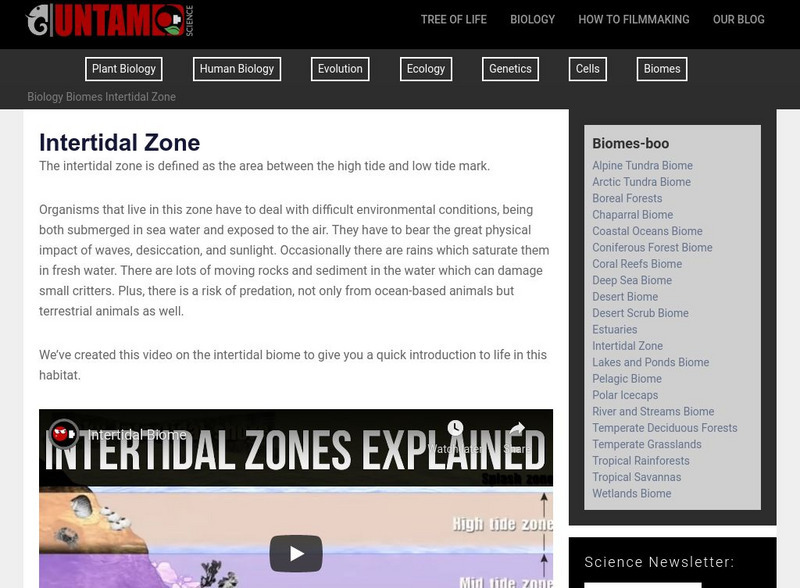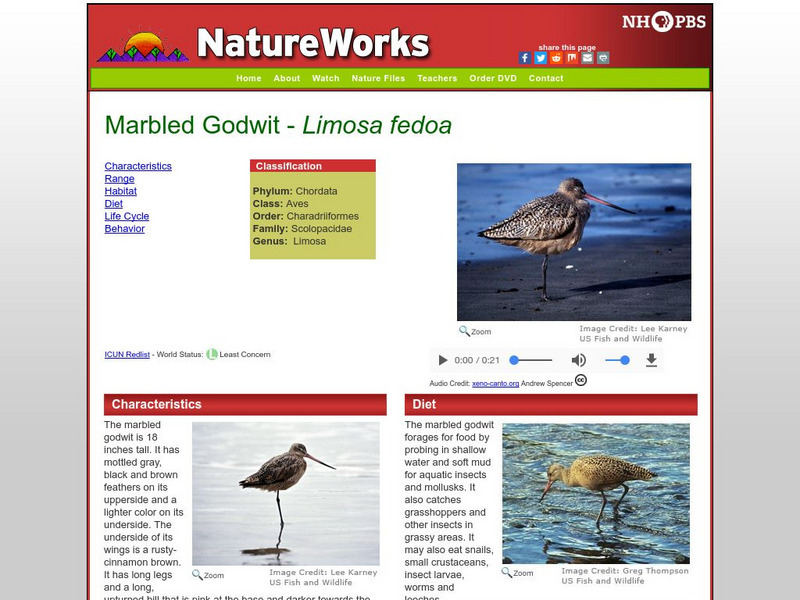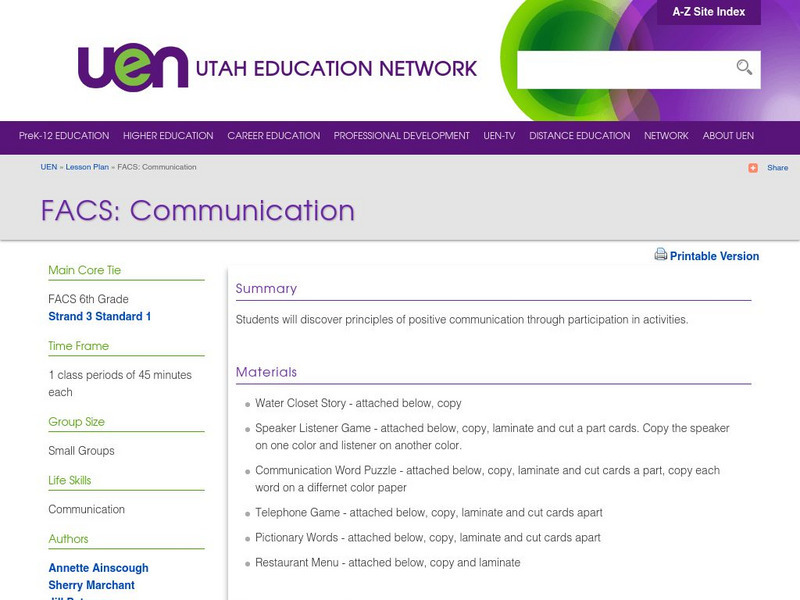E-learning for Kids
E Learning for Kids: Science: Hawaii: What Are the Life Processes in Animals?
Kamoku is a boy from Hawaii who is interested in the seven life processes. Do you know what these are? Join Kamoku and discover them with him.
Utah Education Network
Uen: How Do I Survive?
Compare and contrast the characteristics of living things in different habitats.
City University of New York
Brooklyn College: Exploring Life @ Bi Odot Edu: Signs of Life: Complexity
A nice introduction to the idea that living things are highly organized at several different levels. Great as an introduction to biological complexity.
Science Struck
Science Struck: Facts About the Marine Biome
Describes the characteristics of the marine biome, the plants and animals that live in each of the four ocean zones, coral reefs and estuaries, the climate of the marine biome, and the marine food web.
CK-12 Foundation
Ck 12: Life Science: 10.12 Lizards and Snakes
Explore the characteristics and behaviors of lizards and snakes.
CK-12 Foundation
Ck 12: Life Science: 10.5 Cartilaginous Fish
Understand the behaviors and characteristics of cartilaginous fish.
CK-12 Foundation
Ck 12: Life Science: 5.1 Viruses
Understand the genetics and characteristics of viruses.
Science Struck
Science Struck: Information About the Marine Biome
Describes the characteristics of the marine biome and the plants and animals that live there.
Estrella Mountain Community College
Estrella Mountain Community College: The Diversity of Life
Detailed information about each of the five kingdoms. Each kingdom is separately described, but information is also summarized in a table.
Tree of Life Project
The Tree of Life Web Project: Crinoidea
This site from the University of Arizona provides a very thorough information on chrinoidea, including diagrams and pictures.
Canadian Wildlife Federation
Hinterland Who's Who: Ruffed Grouse
Get the facts about the Ruffed Grouse. Besides finding a detailed physical description of this woodland bird, you?ll also learn about some of its unique facts and characteristics. Also included in this Bird Fact Sheet on the Ruffed...
NASA
Nasa Earth Observatory: What Are Phytoplankton? Fact Sheet
Learn about the characteristics of and different species of phytoplankton. Topics highlighted in this article include photosynthesis, global change, and the marine food chain.
University of California
Ucmp: Plantae
At this resource learners can take a look at the plant kingdom with a detailed examination of fossil records, life history and ecology, systematics, and morphology.
Canadian Wildlife Federation
Hinterland Who's Who: Coyote
Get the facts about coyotes. Besides finding a detailed description of the coyote, you'll also learn about some of its unique facts and characteristics. Also included in this Mammal Fact Sheet on coyotes is information on their habitat...
Untamed Science
Untamed Science: Biology: World Biomes: Intertidal Zone: Aquatic Biome
Learn about the flora and fauna of the intertidal aquatic zone and the characteristics that describe this aquatic biome through reading and watching video clips. [6:42]
PBS
Pbs Teachers:my Life as an Insect in Namib
Identify the harsh characteristics of the Namib Desert and determine the adaptations an insect in Namib Desert must have to survive.
PBS
Nh Pbs: Nature Works: Marbled Godwit
This site created by NatureWorks reveals the natural history of the Marbled Godwit, a North American shore bird. The content of this resource includes a look at this species' characteristics, range, habitat, diet, life cycle, and behavior.
Utah Education Network
Uen: Facs: Communication
This lesson will engage students in discovery learning. Through various tasks, 6th graders will learn the characteristics and challenges in daily family life that may be experienced when living independently. Communication skills are...
Alabama Learning Exchange
Alex: Is It a Moth or a Butterfly?
During this lesson plan, young scholars will explore the differences and similarities between a moth's life and a butterfly's life. Students will be given the opportunity to improve upon their note-taking skills during a virtual museum...
University of California
Ucmp: Introduction to Bacteria
This site provides an introduction to bacteria and examines fossil records, life history and ecology, systematics, and morphology.
Woodland Park Zoo
Woodland Park Zoo: Barn Owl
Zoo site highlights the Barn Owl. Provides a brief description as well as additional information such as classification, range, life cycle and more.
University of Florida
Florida Museum of Natural History: Fish Adaptations
This site has pictures that illustrate the many ways fish have adapted to make the most of life in their environments. The explanations are short and easy to understand.
Science Struck
Science Struck: A Helpful Guide to Understand the Photic Zone
The photic zone is the upper layer of the ocean where sunlight can penetrate and support photosynthesis. This article explains the characteristics of this zone, the food chain that exists there, the adaptations of the plants and animals,...
Woodland Park Zoo
Woodland Park Zoo: Humboldt Penguin
Zoo site features the Humboldt Penguin. Provides a brief description as well as additional information on its classification, range, life cycle and more. Users may also choose to click on the icon to view a short video on these amazing...




